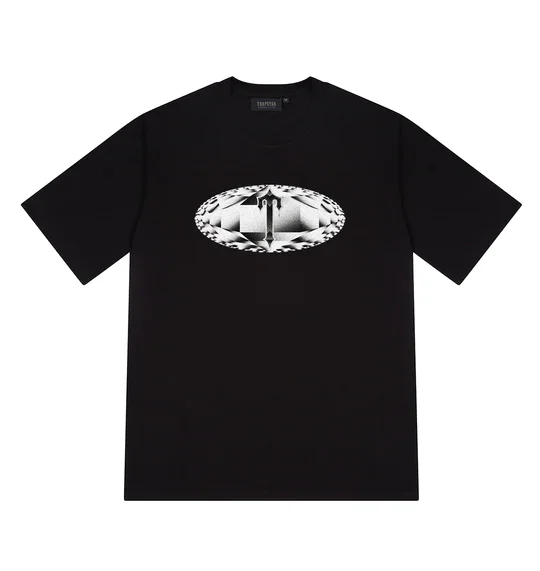The wristwatch has evolved far beyond its practical function of timekeeping. For many, it represents a blend of art, craftsmanship, and personal expression. Luxury wristwatch brands have elevated this everyday object into a symbol of status, elegance, and precision. From intricate mechanical movements to cutting-edge technology, luxury watches captivate collectors and enthusiasts with their iconic designs and innovations. In this blog, we’ll explore some of the most renowned luxury wristwatch brands, the groundbreaking innovations that have defined them, and how wrist watch analysis therapy ties into our deeper connection with these timepieces.
1. Rolex: The Pinnacle of Prestige
When discussing luxury wristwatches, Rolex is often the first name that comes to mind. Established in 1905, Rolex has become synonymous with reliability, precision, and timeless design. The brand is known for its innovations in waterproofness (the Oyster case), automatic winding (the Perpetual movement), and chronometric precision.
Rolex’s iconic designs, such as the Submariner, Daytona, and Datejust, are instantly recognizable and have maintained their appeal across generations. Each of these models carries with it a legacy of excellence and adventure. For example, the Submariner was initially designed for deep-sea divers, combining function with an unmistakable aesthetic that has made it a favorite among adventurers and executives alike.
From a wrist watch analysis therapy perspective, Rolex wearers are often seen as confident, achievement-oriented, and status-conscious. The classic yet bold designs of Rolex watches suggest a personality that values tradition but isn’t afraid to stand out. Rolex wearers tend to appreciate structure and may have a strong focus on their goals, viewing time as a valuable resource to be managed efficiently.
2. Patek Philippe: A Masterclass in Craftsmanship
Patek Philippe is revered for its intricate designs and exceptional craftsmanship. Founded in 1839, the brand is known for creating some of the most complex wristwatches in the world, often incorporating intricate complications such as perpetual calendars, minute repeaters, and split-second chronographs. Each Patek Philippe watch is a work of art, crafted with extreme attention to detail, and often passed down through generations.
The Calatrava and Nautilus models are two of Patek Philippe’s most iconic designs. The Calatrava, with its simple, elegant design, represents the brand’s dedication to timeless sophistication. The Nautilus, on the other hand, combines luxury with a sportier look, appealing to those who want a wristwatch that transitions seamlessly between casual and formal wear.
In wrist watch analysis therapy, individuals who prefer Patek Philippe often value artistry, tradition, and intellectual pursuits. These people are detail-oriented and appreciate the finer things in life, not just for their beauty but for their craftsmanship and heritage. Patek wearers may have a calm, measured approach to life, valuing quality over quantity and placing importance on legacy.
3. Audemars Piguet: Pioneers of Bold Design
Audemars Piguet, founded in 1875, is one of the most revered luxury watchmakers in the world, known for its innovative designs and technical mastery. The brand broke new ground with the introduction of the Royal Oak in 1972, a watch that redefined the luxury sports watch category. With its octagonal bezel and integrated bracelet, the Royal Oak remains one of the most iconic watch designs to this day.
Audemars Piguet is also known for pushing the boundaries of traditional watchmaking by experimenting with materials like titanium and ceramic. Their dedication to innovation while preserving traditional Swiss craftsmanship has solidified their reputation as industry leaders.
In wrist watch analysis therapy, those who are drawn to Audemars Piguet tend to appreciate innovation and creativity. These individuals often have a forward-thinking mindset and are not afraid to make bold choices. The distinct and often avant-garde designs of Audemars Piguet watches suggest a personality that values originality and isn’t afraid to challenge the status quo.
4. Omega: Precision Meets Adventure
Omega is another heavyweight in the luxury wristwatch world, renowned for its precision and association with adventure and exploration. Founded in 1848, Omega has been the official timekeeper of the Olympic Games and the preferred watch of NASA astronauts, with its Speedmaster famously being the first watch worn on the moon.
Omega’s Seamaster and Speedmaster collections are among the brand’s most iconic. The Seamaster, with its association with James Bond, reflects a rugged elegance, while the Speedmaster’s history with space exploration speaks to precision and performance under extreme conditions.
In wrist watch analysis therapy, Omega wearers are often seen as adventurous, driven, and detail-focused. The precision and reliability of Omega watches suggest a personality that values dependability and is unafraid of taking calculated risks. Omega wearers tend to be pragmatic, enjoying both the aesthetic and functional aspects of their timepieces.
5. Tag Heuer: The Spirit of Innovation and Speed
Tag Heuer, founded in 1860, has always been associated with precision and high-performance sports. The brand has a deep connection with motorsports, and its watches reflect a dedication to speed, precision, and durability. The Carrera and Monaco collections are some of Tag Heuer’s most iconic designs, with the Monaco gaining fame after being worn by Steve McQueen in the film Le Mans.
Tag Heuer has also been a pioneer in chronograph movements and continues to push the envelope with innovations such as their connected smartwatches. The blend of traditional watchmaking with modern technology is a hallmark of the brand.
Individuals who favor Tag Heuer are often seen in wrist watch analysis therapy as dynamic, competitive, and focused on performance. These individuals tend to thrive in fast-paced environments and enjoy challenges. The precision and high-performance nature of Tag Heuer watches suggest a personality that values achievement and efficiency, with a strong desire to push boundaries.
6. Hublot: Fusion of Tradition and Innovation
Hublot is a relatively young brand compared to its peers, founded in 1980, but it has quickly made a name for itself with its philosophy of “The Art of Fusion.” Hublot is known for combining unexpected materials like rubber, ceramic, and carbon fiber with traditional watchmaking techniques. Their Big Bang collection, in particular, has become a symbol of bold design and innovative craftsmanship.
Hublot watches cater to those who aren’t afraid to make a statement. In wrist watch analysis therapy, Hublot wearers are often characterized as bold, creative, and experimental. The fusion of materials and styles suggests a personality that embraces contrasts and thrives on standing out from the crowd. These individuals are often innovative thinkers who are unafraid to take risks in both fashion and life.
7. Wrist Watch Analysis Therapy: Understanding Your Choice
Wrist watch analysis therapy is a unique method used to analyze an individual’s personality based on their choice of wristwatch. The type of watch you wear—whether a classic analog timepiece or a modern smartwatch—can reveal your approach to life, time management, and even your emotional well-being. By studying your preferences, such as brand, style, and how you interact with your watch, therapists can gain insights into your personality traits and thought patterns.
For example, luxury watch wearers often have a strong sense of identity and status. Their choice of watch may reflect their values, such as a desire for precision, an appreciation for artistry, or a love for innovation. Whether you choose a Rolex for its prestige or an Audemars Piguet for its bold design, your wristwatch can be a reflection of who you are at your core.
8. Wall Clock Analysis Therapy: The Broader Picture
Just as wrist watch analysis therapy delves into personal timepiece choices, wall clock analysis therapy explores how timekeepers in your environment affect your mental state. Wall clocks, often overlooked, can influence how you perceive time and manage stress. A large, prominently placed wall clock can evoke a sense of urgency or importance, while a more discreet clock can encourage a relaxed, reflective atmosphere.
In homes, offices, or public spaces, the presence and style of wall clocks can subtly impact behavior and mood. By understanding how these timepieces affect your perception of time, you can optimize your environment for better productivity or relaxation, depending on your needs.
Conclusion: The Intersection of Luxury and Personality
Luxury wristwatches are more than just status symbols—they are deeply personal objects that reflect individual tastes, values, and personalities. Whether you are drawn to the timeless elegance of a Patek Philippe, the innovative spirit of an Audemars Piguet, or the precision of an Omega, your wristwatch choice says a lot about who you are.
Through wrist watch analysis therapy, you can gain insight into how your watch reflects your inner self. Likewise, with wall clock analysis therapy, you can explore how timekeeping devices in your environment affect your well-being. Ultimately, luxury wristwatches are not just about keeping time—they are about understanding how we relate to time and, in turn, how we relate to ourselves.






